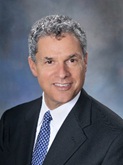
Todd K. Rosengart
Baylor College of Medicine
USA
Title: Myocardial regeneration via cellular reprogramming
Biography
Biography: Todd K. Rosengart
Abstract
Congestive heart failure (CHF), typically occurring as a result of myocardial infarction, is the leading cause of cardiac mortality in the West, afflicting over 5 million individuals and costing over $10 billion in medical care in the US alone. Cardiac stem cell therapy, which theoretically repopulates otherwise permanently scarred myocardium with contractile cells, has offered some promise in clinical trials. This strategy remains inherently constrained, however, by the hurdles of achieving adequate exogenous implant survival and integration into host myocardium. Potential risks of induced pluripotent stem (iPS) cell tumorigencity and immunogenicity may likewise limit these as stem cell implants. The recent discovery that “induced cardiomyocyte†(iCM) cells could be generated directly from somatic cells, for example using cocktails of transcription factors such as GATA4, MEF2c and TBX5, offers the remarkable new possibility of bypassing stem cell staging completely in the generation of autologous cardiomyocytes from cardiac fibroblasts. “Cellular reprogramming†likewise presents the intriguing possibility of converting scar fibroblasts in situ into functional iCMs, obviating entirely the challenges of exogenous cell implantation into a host myocardium. By converting scar directly back into functional myocardium, this transformational advance would eliminate the challenges of exogenous stem cell delivery that have slowed this field since its inception. While new evidence suggests that human cells may be more resistant to reprogramming than those transdifferentiated in small animal models, a number of methodologies are being developed to enable reprogramming even of human cells. Taken together, these new studies suggest an entirely new paradigm in CHF treatment that could potentially replace conventional therapies for end stage heart disease, include transplant and artificial heart implant strategies.
